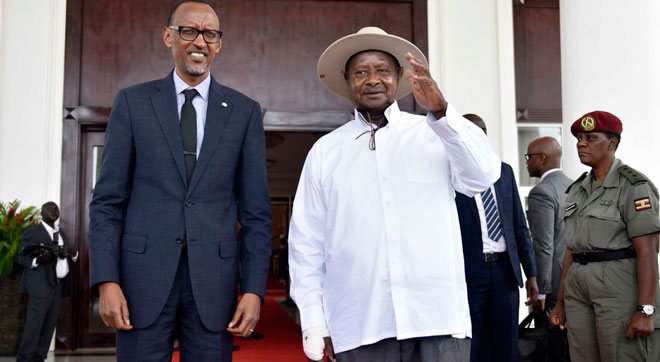
Kampala, Uganda | THE INDEPENDENT | The East African Community (EAC) Secretary General, Ambassador Liberat Mfumukeko has said the organisation is confident Rwanda and Uganda diplomatic stand-off will be resolved.
Rwanda, two weeks ago closed its Gatuna border in Kabale district, reportedly to upgrade their One Stop Border Post. The move was however construed as an attempt to slow down or stop entry of Uganda goods in Rwanda.
Rwanda then alleged that Uganda is hosting and aiding dissidents, plotting to overthrow Kigali government. Rwanda also claimed that Uganda is arresting and torturing its citizens. After closing the border, Rwanda blocked its citizens to stop entering Uganda.
Uganda’s Foreign Affairs, Minister Sam Kutesa denied all the allegations. Kenya President Uhuru Kenyatta on Monday met President Paul Kagame and President Museveni. The impromptu bilateral meetings were seen as an attempt to address tensions between the two countries.
Mfumukeko says that the East African Community talks about conflict resolution on daily basis and it is using all the available ways to resolve the conflict.
However, Mfumukeko refused to divulge mechanisms and frameworks that the organisation is using to resolve the conflict and what progress they have made in the past two weeks.
Mfumukeko argued that the regional body is growing stronger. However, like a household, he said at times, quarrels emerge but are solved expeditiously.
Mfumukeko on Wednesday met the Uganda Investment Authority (UIA) officials to brief them on EAC’s move to promote industrialisation and private sector-led integration.
Mfumukeko says he is drumming support for the 5th East African Community development strategy adopted by head of states last year.
The overall goal of the strategy is to build a firm foundation for transforming EAC into a stable, competitive and sustainable lower income region by 2021.
*******
URN
 The Independent Uganda: You get the Truth we Pay the Price
The Independent Uganda: You get the Truth we Pay the Price



